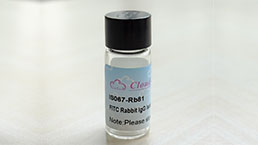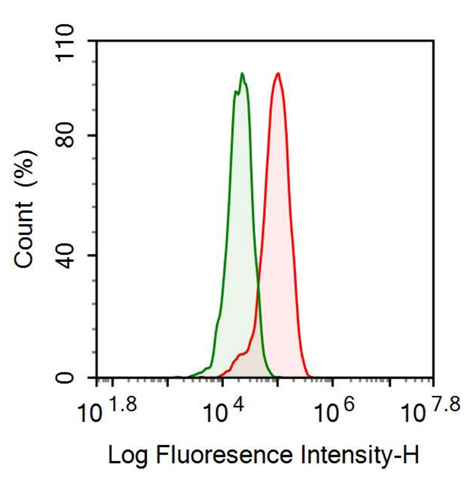Anti-Glutathione S Transferase Theta 1 (GSTt1) Polyclonal Antibody 

GST-T1
- UOM
- FOB US$ 132.00 US$ 220.00 US$ 352.00 US$ 440.00 US$ 770.00
- Quantity
Overview
Properties
- Product No.FAA622Ra01
- Organism SpeciesRattus norvegicus (Rat) Same name, Different species.
- ApplicationsFCM
Research use only - Downloadn/a
- CategoryEnzyme & KinaseMetabolic pathwayTumor immunityInfection immunityHepatology
- Ig Type IgG, Potency n/a
- PurificationAntigen-specific affinity chromatography followed by Protein A affinity chromatography
- LabelNone
- Excitation Laser
- Vol. per test
- Buffer FormulationPBS, pH7.4, containing 0.02% NaN3, 50% glycerol.
- TraitsLiquid
Share your citation
Upload your experimental result
Review
Leave a message
Loading...
Sign into your account
Share a new citation as an author
Upload your experimental result
Review
Please attach serial No. on instruction manual


Contact us
Please fill in the blank.
Name*
Organization
Address
E-mail address*
Telephone
Inquiry*
Verification code*

Usage
Flow cytometry: 20µg/ml;
Optimal working dilutions must be determined by end user.
Storage
Store at 4°C for frequent use. Stored at -20°C in a manual defrost freezer for one year without detectable loss of activity. Avoid repeated freeze-thaw cycles.
Giveaways
Increment services
-
 Protein A/G Purification Column
Protein A/G Purification Column
-
 Positive Control for Antibody
Positive Control for Antibody
-
 Tissue/Sections Customized Service
Tissue/Sections Customized Service
-
 Phosphorylated Antibody Customized Service
Phosphorylated Antibody Customized Service
-
 Flow Cytometry (FCM) Experiment Service
Flow Cytometry (FCM) Experiment Service
-
 Immunoprecipitation (IP) Experiment Service
Immunoprecipitation (IP) Experiment Service
-
 Immunofluorescence (IF) Experiment Service
Immunofluorescence (IF) Experiment Service
-
 Buffer
Buffer
-
 DAB Chromogen Kit
DAB Chromogen Kit
-
 SABC Kit
SABC Kit
-
 Isotype Control
Isotype Control
-
 Real Time PCR Experimental Service
Real Time PCR Experimental Service
Citations
- Human Glutathione S-Transferase Enzyme Gene Polymorphisms and Their Association With NeurocysticercosisPubmed:27021019
- Evaluation of surfactant proteins A, B, C, and D in articular cartilage, synovial membrane and synovial fluid of healthy as well as patients with osteoarthritis and …Pubmed: 30235245
- Elevated levels of multifunctional surfactant proteins in cerebrospinal fluid are associated with signs of increased cerebrospinal fluid flow in cranial magnetic …Doi: 10.1007/s12035-017-0835-5






